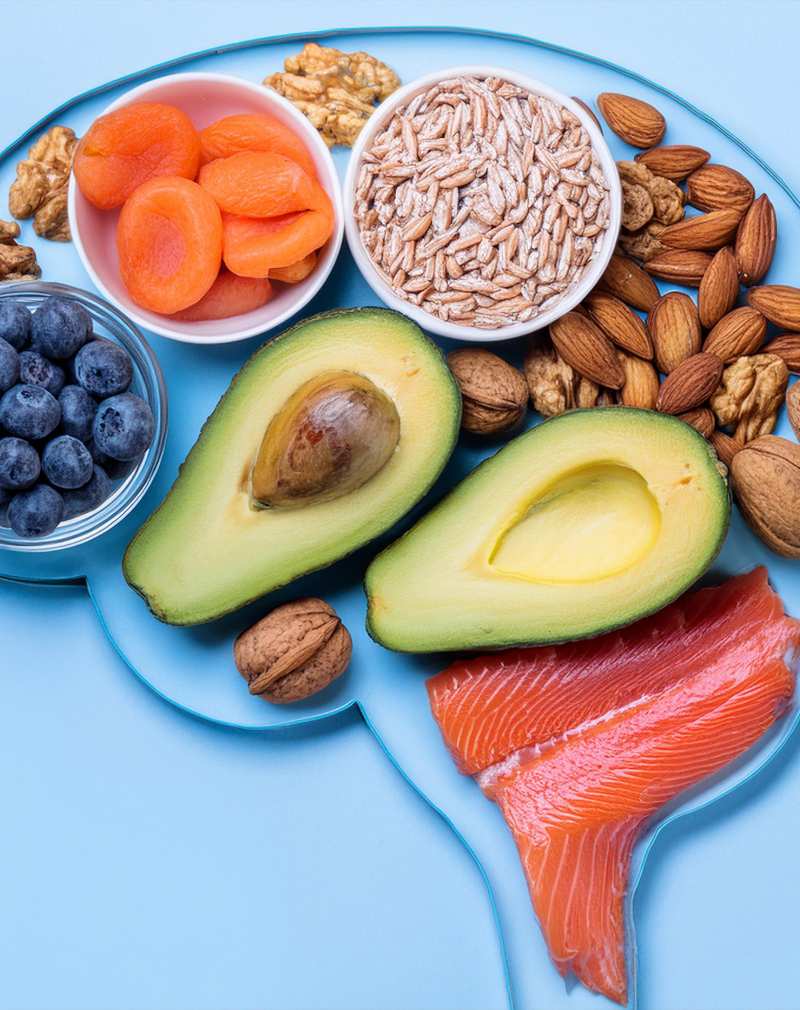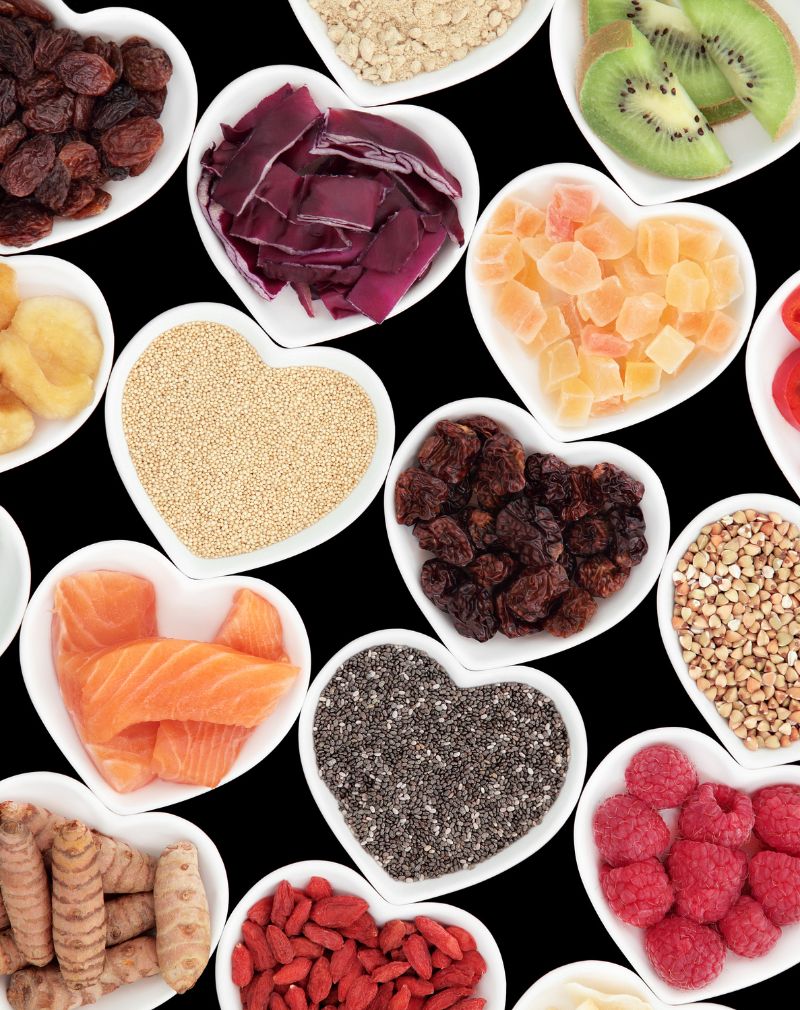You wake up feeling drained. Not because you slept poorly, but because your body feels off. The food you’ve been eating is doing little to help. Your thoughts are foggy, your mood is fragile, and even the smallest stress feels too much.
More people are starting to realize this isn’t just about mental health. It’s about what we feed our bodies—and how that feeds our minds.
According to the World Health Organization in 2024, depression and anxiety cost the global economy over 1 trillion US dollars each year. What’s often missed is this: nutrition plays a role in that number. Diet is one of the most overlooked, yet modifiable, risk factors for mental health issues.
Science has been digging deeper into what’s known as the gut-brain axis. It turns out the bacteria living in your digestive system may influence your brain far more than we used to believe. Your gut doesn’t just digest food, it sends signals that can affect mood, clarity, and even resilience.
That’s why at The American Wellness Center in Dubai Healthcare City, our Nutrition and Internal Medicine teams work together to help patients understand this powerful link. Whether you’re managing anxiety, navigating burnout, or simply not feeling like yourself, your plate might be part of the answer.
The Science Behind the Gut-Brain Connection
Your brain and your gut are in constant conversation. That connection isn’t emotional or poetic, it’s biological.
Inside your gut lives a vast colony of bacteria, fungi, and other microbes. This is the gut microbiome, and it plays a major role in producing and regulating neurotransmitters like serotonin and dopamine. These are the same chemicals that help stabilize your mood, influence sleep, and support emotional balance.
Harvard Medical School researchers in early 2024 found that people with more diverse gut bacteria reported significantly lower levels of anxiety and depression. Their findings confirmed what clinicians have suspected for years: a healthier gut means a healthier mind.
But it’s not just about bacteria. When your gut barrier weakens, it can let toxins slip into your bloodstream. This is often referred to as leaky gut. The body reacts with inflammation, which doesn’t just affect digestion. It affects your brain too. Inflammation has now been directly linked to higher rates of depression, poor focus, and even emotional burnout.
This is where nutrition makes a difference. The right foods can restore balance. The wrong ones keep the cycle going.
Nutritional Deficiencies That Can Worsen Mental Health
Even the best intentions can fall short if your body is missing essential nutrients. Below are some of the most commonly linked deficiencies and how they affect your mental health, backed by 2024 studies from journals like Nutrients and The Lancet Psychiatry:
- Vitamin D
Linked with mood regulation. Low levels are strongly associated with seasonal depression and fatigue, especially in sun-limited environments. - B Vitamins
Especially B6, B9, and B12. These are critical in producing serotonin and dopamine. Deficiency can lead to irritability, anxiety, and low energy. - Omega-3 Fatty Acids
Known to reduce brain inflammation. A deficiency is often tied to increased symptoms of depression and difficulty concentrating. - Iron and Zinc
Both are involved in neurotransmitter function. Low levels may contribute to chronic fatigue, brain fog, and mood swings.
These aren’t fringe theories. They’re increasingly central to how we now understand mental health. And they can all be addressed through thoughtful nutritional care.
How a Nutritionist Can Help
When you’re not feeling like yourself, it’s easy to overlook your plate. But what you eat may be quietly shaping how you think and feel.
A trained nutritionist does more than suggest salads and smoothies. They listen, assess, and create plans tailored for your mind and body.
They look at more than calories. They look at patterns. Are your meals supporting steady focus? Is inflammation creeping in? Could your mood be reacting to what’s missing—or to what shouldn’t be there at all?
At our center in Dubai Healthcare City, nutritional care goes beyond food. It’s about restoring clarity and stability through:
- Meals built around your unique biochemistry
- Supplements that support mental wellness without clashing with medications
- Identifying food triggers that might be quietly adding to anxiety or low mood
- Ongoing checks to ensure nutrients are actually being absorbed, not just consumed
It’s a process that prioritizes your long-term resilience, not just quick fixes.
Working Together for the Whole Picture
Sometimes food is just one piece of the puzzle. Hormones, blood sugar, chronic conditions—these can all influence how you feel, too.
That’s why our nutrition team works closely with internal medicine physicians to catch what others might miss. When you’re experiencing emotional distress, they help check for deeper contributors:
- Is your thyroid functioning properly?
- Is insulin resistance affecting your energy or mood?
- Are medications depleting key nutrients over time?
This kind of integrated care is standard at the American Wellness Center, where internal medicine and nutritional insight are part of the same conversation—not separate silos.
Where It Starts to Make a Difference
It’s not just theory. These are the stories we see in our clinics:
- A young professional battling anxiety finds calm after correcting a hidden magnesium and B-vitamin shortfall
- A father in his 40s, juggling cholesterol and pressure at work, feels sharper and more grounded after switching to an anti-inflammatory plan
- A teenager, once struggling with mood swings and disrupted sleep, now feels steadier after balancing omega-3 and zinc levels
In each case, the change wasn’t dramatic overnight. It was quiet, gradual, and real.
Is It Time to See a Nutritionist?
You don’t need a crisis to reach out. Often, the signs are subtle:
- You wake up tired, even after a full night’s sleep
- Your mood shifts without warning or explanation
- Your stomach doesn’t feel settled, no matter how you eat
- You crave sugar or carbs just to get through the day
These aren’t just quirks. They’re signals. And they deserve attention.
What If Food Could Help You Feel Like Yourself Again?
That’s what it really comes down to. Not food for weight loss. Not food for control. But food that helps you feel clear, calm, and connected again.
At the American Wellness Center in Dubai Healthcare City, we don’t believe in one-size-fits-all answers. We believe in listening carefully and building plans that support who you are and how you live.
If something in this felt familiar, you don’t have to figure it out on your own. You’re welcome to sit with one of our nutritionists. Ask your questions. Be heard.
Sometimes the smallest changes bring the biggest relief.
Let’s start there.



